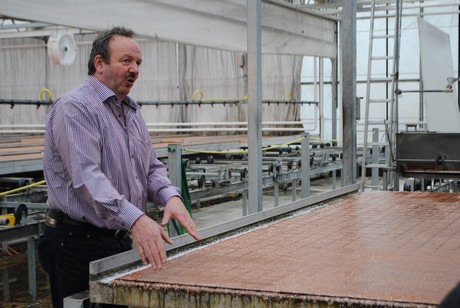
Elmar Gimperlein talking to a Dutch group, visiting the company during a horticultural fact-finding trip to Southern Germany
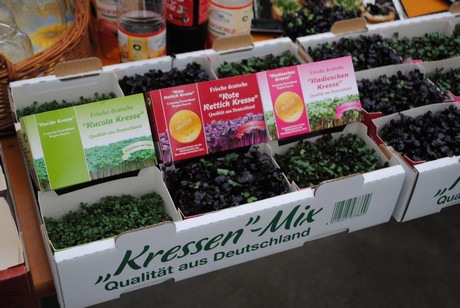
Mixed packaging with rocket cress and two types of radish cress
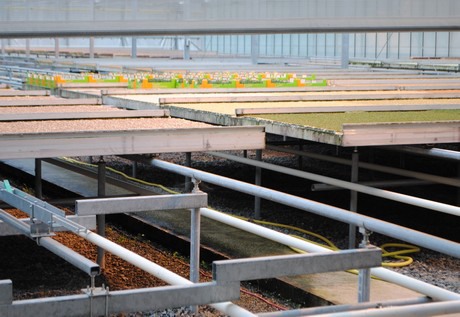
The cress grows fully within seven days
Niche
The trend in Germany is shifting from national produce to regional produce. Although Gimperlein is proud when he sees his product on shelves with the regional Franken label, the product really goes everywhere in Germany. The cresses are such a niche, that the German origin is sufficient for buyers and the consumer. Also, thanks to production on cellulose, the company is organically certified.
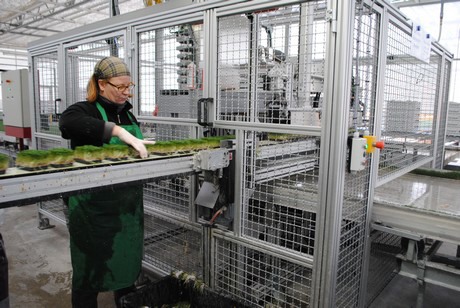
All trays that wouldn't be bought in the store, are taken out of production
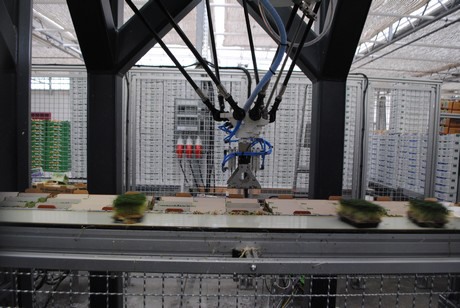
Expansion
The latest addition to Bio-Maintalkresse is the new packaging line, but the last expansion of the company was in 2008. Cultivation increased to 0.75 per greenhouse then. The product range was updated as well then: Gimperlein opted for flavour and for a number of Koppert-Cress varieties. The Bio-Maintalkresse product range now comprises garden cress and a mixed packaging with rocket cress and two types of radish cress. The EHEC crisis in 2011 was a tough blow following the investments. Revenue decreased sharply, and Gimperlein is still relieved to have got through that period. Since then, the products don't enter the market as "Sprossen" (sprouts), but as "Kresse" (cresses). Business is going well again now, Gimperlein says, although there's another side to that as well. "We began this to escape from the seasonal pressure of vegetable cultivation. But now we're actually busy year-round."
